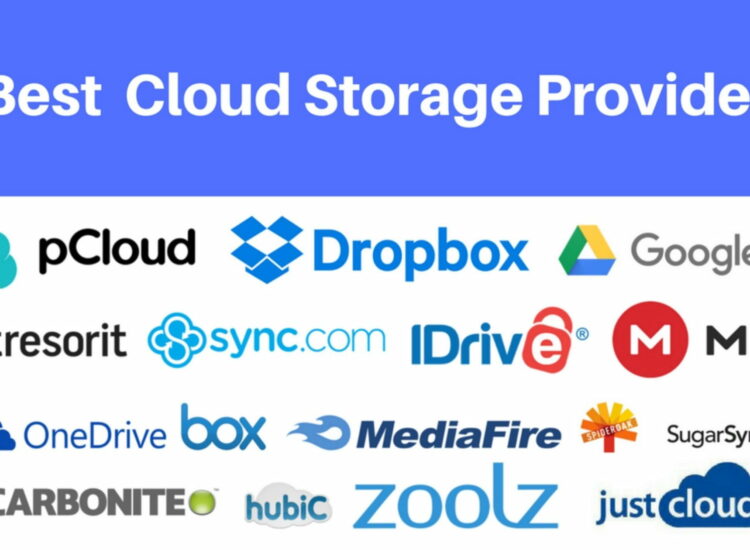The landscape of web hosting is rapidly evolving, and Google’s entry into this market with its cloud hosting services is a game-changer for businesses seeking scalability, security, and high performance. In this article, we’ll introduce Google Web Hosting and discuss its profound impact on modern digital operations.
Toc
- 1. Introduction to Google Web Hosting
- 2. Google’s Approach to Web Hosting
- 3. Optimizing Your Website on Google Web Hosting
- 4. Related articles 01:
- 5. Choosing the Right Hosting Service for Your Business
- 6. Best Practices for Optimizing Your Website on Google Web Hosting
- 7. Related articles 02:
- 8. Tips for Effective Website Maintenance
- 9. Conclusion
Introduction to Google Web Hosting

Google has made significant strides in cloud computing, and its web hosting services are no exception. With a robust infrastructure that powers the most extensive search engine in the world, Google Web Hosting offers businesses of all sizes the reliability and innovation necessary to thrive online.
What is Google Web Hosting?
Google Web Hosting is a cloud-based hosting service that allows businesses to host their websites and applications on Google’s infrastructure. It offers a variety of features, including automatic scaling, high uptime rates, advanced security measures, and seamless integration with other Google products.
The Benefits of Cloud Hosting Services
Cloud hosting has become increasingly popular in recent years due to its numerous benefits for businesses, including:
- Scalability: With cloud hosting services like Google Web Hosting, businesses can easily scale their resources up or down based on their needs. This flexibility allows them to handle sudden spikes in traffic or expand their online presence effortlessly.
- Reliability and High Performance: The use of multiple servers and advanced load balancing techniques ensures that websites hosted on Google Web Hosting have high uptime rates and deliver fast-loading pages to users.
- Advanced Security Measures: Google’s infrastructure is built with security in mind, making it an excellent option for companies looking to protect sensitive data and maintain compliance with industry regulations.
- Seamless Integration: Google Web Hosting seamlessly integrates with other Google products, such as Google Analytics, making it easier for businesses to manage their online presence and gain valuable insights into website performance.
Impact on Modern Digital Operations
The rise of cloud hosting services like Google Web Hosting has had a significant impact on how businesses operate in the digital landscape. Some of the ways it has transformed modern digital operations include:
- Cost Efficiency: With cloud hosting services, businesses no longer need to invest in expensive hardware and infrastructure to host their websites and applications. They can pay only for the resources they use, making it a cost-efficient option.
- Increased Agility and Flexibility: The ability to scale resources up or down quickly and effortlessly allows businesses to be more agile and adapt to changing market conditions.
- Global Reach: With Google’s extensive network of data centers, businesses can host their websites closer to their target audience, resulting in faster page loading times and a better user experience.
- Focus on Core Competencies: By outsourcing web hosting to Google, businesses can focus on their core competencies and leave the technical aspects of website management to experts.
Google’s Approach to Web Hosting

Google Web Hosting utilizes a network of servers in geographically diverse locations, providing businesses with unparalleled speed and reliability. Its cutting-edge technology and continuous innovation make it an attractive option for companies looking to optimize their online presence.
Security Features
Security is a top priority for Google, and its web hosting services reflect this. With built-in DDoS protection, secure data storage methods, and regular security updates, businesses can rest easy knowing their website is protected from cyber threats.
Scalability Options
One of the biggest advantages of cloud hosting is scalability. Businesses can easily adjust resources as needed without worrying about costly infrastructure changes. Google takes this a step further by offering auto-scaling options, where resources are automatically added or removed based on website traffic.
Integration with Other Google Products
Google Web Hosting seamlessly integrates with other Google products, providing businesses with a comprehensive suite of tools to manage their online presence. Integration with products like Google Analytics and Google Ads allows for in-depth data analysis and optimization.
Optimizing Your Website on Google Web Hosting

1. https://ngungtaonghiep.com/archive/101/
2. https://ngungtaonghiep.com/archive/106/
3. https://ngungtaonghiep.com/archive/103/
To take full advantage of Google Web Hosting, businesses must optimize their website for speed, security, and performance. Some tips for optimizing your website on Google Web Hosting include:
Utilize Caching
Caching is a crucial technique for improving website performance on Google Web Hosting. By storing frequently accessed data temporarily, caching reduces the load on servers and speeds up response times for users. Businesses can implement various caching methods, such as browser caching, server-side caching, and content delivery networks (CDNs), to enhance user experience and decrease page load times.
Optimize Images and Media
Large images and media files can significantly slow down a website. It’s essential to compress images and use appropriate formats (like WebP for images and MP4 for videos) to ensure quick loading without compromising quality. Utilizing responsive design practices also ensures that images are appropriately sized based on the user’s device, which further contributes to faster page speeds.
Monitor Performance Metrics
Regularly monitoring performance metrics is vital for ongoing optimization. Google Web Hosting provides access to tools like Google Analytics and Google Search Console, which offer insights into user behavior and site performance. By analyzing this data, businesses can identify bottlenecks and areas for improvement, allowing them to make informed decisions that boost overall website efficiency.
Regular Updates and Maintenance
Keeping your website updated is essential for both security and performance. Regularly updating content management systems, plugins, and security patches help protect against vulnerabilities and ensure that the site runs smoothly. Establishing a routine maintenance schedule can help businesses stay proactive, integrating regular checks on site health and functionality.
Choosing the Right Hosting Service for Your Business
While Google Web Hosting offers many benefits, it may not be the best option for every business. When choosing a hosting service, businesses should consider factors such as:
Type of Website
The type of website a business plans to operate significantly influences the choice of hosting service. For simple static websites or personal blogs, a basic shared hosting plan may suffice. However, for e-commerce sites or applications that require high levels of traffic and security, a more robust solution like Google Web Hosting may be necessary. Businesses should assess their website’s scale, complexity, and anticipated growth when making a decision.
Technical Support
Another crucial aspect to consider is the availability and quality of technical support. Reliable support can alleviate many headaches that come with website management, particularly during critical times. Google Web Hosting provides comprehensive support options, including documentation and live assistance, which can be invaluable for businesses that may not have in-house IT expertise. Evaluating the support channels available can help ensure businesses have access to timely help when needed.
Budget and Pricing Structure
Budget considerations also play a vital role in selecting the right hosting service. While Google Web Hosting has a reputation for quality, businesses need to analyze their budget to ensure they can afford the services without compromising other operational expenses. Understanding the pricing structure, including any potential extra fees, can aid in making a more informed decision.
Future Scalability
Finally, future scalability is an important factor to consider. As businesses grow, their hosting needs may evolve. Choosing a hosting provider that allows for easy upgrades and expansions—like Google Web Hosting—can save time and resources in the long term. It’s essential to look for a service that can accommodate increased traffic, additional storage, or other requirements as the business expands.
Best Practices for Optimizing Your Website on Google Web Hosting
Once you’ve chosen Google Web Hosting as your preferred hosting service, there are several steps you can take to ensure that your website is optimized for performance and SEO.
Utilize Google’s Caching System
Google Web Hosting offers a robust caching system that can significantly enhance website performance. Leveraging this system allows businesses to serve frequently accessed content quickly, reducing server load and improving user experience. Ensure that dynamic content is appropriately managed in the caching process to maintain real-time updates without sacrificing performance. Businesses can configure their caching settings through the Google Cloud Console, enabling them to balance speed with the need for up-to-date information.
Optimize for Mobile Users
With a growing number of users accessing websites via mobile devices, optimizing for mobile is imperative. Google Web Hosting supports responsive design, which adjusts content automatically based on the device being used. Implementing mobile-specific optimisations, such as AMP (Accelerated Mobile Pages), can further improve loading times on mobile devices, leading to a better user experience and potentially higher conversion rates. Testing your site using Google’s Mobile-Friendly Test Tool can provide valuable feedback on areas for improvement.
1. https://ngungtaonghiep.com/archive/102/
2. https://ngungtaonghiep.com/archive/106/
3. https://ngungtaonghiep.com/archive/105/
Leverage SSL Certificates
Security is paramount for any website, particularly those that handle sensitive data. Google Web Hosting offers SSL certificates that encrypt the data exchanged between users and the website, ensuring a secure connection. Beyond just security, having an SSL certificate can positively influence search engine rankings as Google prioritises secure sites in its algorithms. It’s advisable for businesses to enable HTTPS to instil trust in users and enhance their website’s SEO performance.
Regularly Backup Your Site
Regular backups provide protection against unexpected server failures, data loss, and cyber-attacks. Google Web Hosting offers automated backups through its Cloud Storage service, making it easy for businesses to set up regular backup schedules. Having backups in place minimizes the risk of losing valuable website data or having to start from scratch in case of a disaster.
Tips for Effective Website Maintenance

Maintaining a website goes beyond initial setup; it requires ongoing attention to ensure optimal performance and security. Here are some key tips for effective website maintenance:
Schedule Regular Audits
Conducting regular audits of your website is crucial to identify issues before they escalate. This includes checking for broken links, outdated content, and any errors that could impact user experience. Regular audits allow businesses to stay aligned with best practices for SEO and user engagement. Utilizing tools such as Google Search Console can help in monitoring site performance, indexing issues, and identifying optimization opportunities. It’s advisable to set a maintenance schedule—perhaps quarterly—to assess and refine website content, ensuring that it remains relevant and engaging to visitors.
Update Content Regularly
Fresh, relevant content not only engages visitors but also plays a significant role in improving search rankings. Establishing a content calendar can aid in planning regular updates, whether through blog posts, news articles, or product information. This consistent refresh of content signals to search engines that your site is active, which can enhance visibility. Additionally, responding to audience feedback and industry trends through updated content keeps your site aligned with user interests.
Monitor Site Performance
Keeping an eye on website performance metrics is integral to understanding user behaviour and making data-driven improvements. Tools like Google Analytics can provide insights into traffic sources, user demographics, and engagement patterns. By regularly monitoring key performance indicators (KPIs), businesses can identify any declines in performance and take timely action. Addressing slow loading times, high bounce rates, and low conversion rates can significantly enhance overall site effectiveness and user satisfaction.
Implement Security Measures
Incorporating security measures is essential to safeguard your website against potential threats. Beyond SSL certificates, businesses should ensure that all software components, including plugins and themes, are up-to-date. Regularly changing passwords and using two-factor authentication can further enhance security. Conducting vulnerability assessments and employing security plugins can provide additional layers of protection, helping to mitigate risks associated with cyber-attacks.
By following these effective maintenance tips, businesses can not only maintain the integrity and performance of their website but also foster trust with their audience, ultimately supporting long-term success.
Conclusion
In today’s digital landscape, maintaining a robust online presence is essential for any business aiming for success. By utilising services like Google Web Hosting, companies can enhance their website’s performance, security, and user engagement. Regular maintenance, including audits and content updates, ensures that websites are not only functional but also aligned with user expectations and SEO best practices. Additionally, implementing strong security measures protects both the business and its users from potential threats. With a proactive approach to website management, businesses can build a trustworthy platform that not only attracts visitors but also converts them into loyal customers. Ultimately, investing in effective website maintenance paves the way for sustained growth and a competitive edge in the market.















